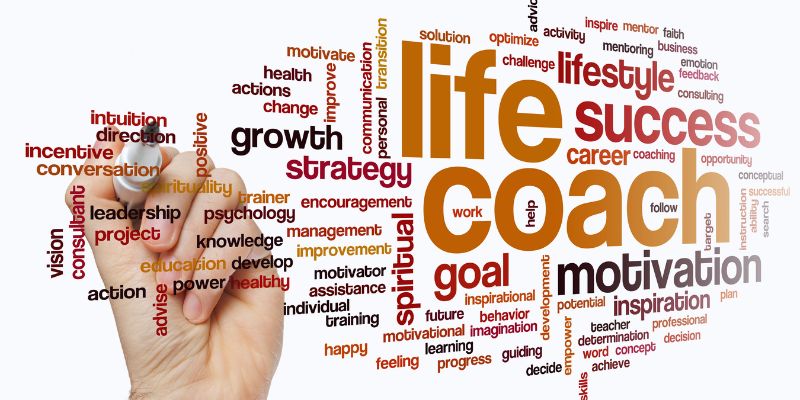Obstacles abound in life. While some are little, others feel overpowering. Still, Resilience—that capacity for bounce-back from difficulty—can make all the difference. Making a resilience strategy can help you to confidently and powerfully negotiate the ups and downs of life. A personal resilience strategy allows you to control anxiety, remain optimistic, and accomplish goals. It gives you the means to get beyond challenges and welcome change.
This guide will enable you to create your methodical step-by-step plan. Learn self-care, goal-setting, and emotional strength-building techniques. Resilience will ground you whether your challenges are personal or professional. Let's explore how you might reach your full potential and flourish despite obstacles in life.

What is Resilience, and Why Does it Matter?
Resilience is your capacity for setback or stress recovery. It's about adjusting to rather than avoiding difficulties. From personal losses to job challenges, everyone finds difficulty in life. Resilience keeps you strong and forward-moving. Consider it like a muscle developing with usage. Working on Resilience can help you be more suited to face the challenges of daily life.
Resilient persons have improved mental health and reduced stress. They also more successfully reach their targets. Success over the long run depends on developing Resilience. It raises your emotional intelligence and ability to solve problems. It enables you to confront obstacles squarely without regard to fear. Resilience guarantees that you stay consistent and targeted, whatever life presents.
Steps to Build Your Resilience Plan:
Resilience is built from a well-defined plan. Use these guidelines to design one specifically for your needs:
- Step 1: Set Clear Goals: List the spheres of your life where you require fortitude and create clear, reasonable objectives.
- Step 2: Practice Self-Care: Sort your body and thoughts. Eat right, get moving, and get enough sleep.
- Step 3: Build a Support Network: Find encouraging, optimistic people with whom you can share your challenges and get guidance.
- Step 4: Develop Problem-Solving Skills: Learn to tackle difficulties rationally. Divide challenges into doable, smaller steps.
- Step 5: Focus on Positivity: Cultivate mindfulness and thankfulness. Change your perspective to find chances among difficulties.
- Step 6: Learn from Failure: See obstacles as teachings. Think back on what went wrong and how you might make corrections.
These guidelines will help you lay a firm basis for Resilience.
The Role of Self-Care in Resilience:
Resilience building depends on self-care. It's about addressing your physical, psychological, and emotional requirements as much as about pampering yourself. First, keep a good lifestyle. Make regular exercise, eat healthy food, and guarantee enough sleep. A good mind follows from a good body. Mental self-care covers stress management and mindfulness. To quiet your ideas, try meditation or deep breathing.
Furthermore, journaling is helpful for emotional processing. Remember emotional self-care as well. Get around individuals who inspire you. See a therapist or counselor as advised. Ask for aid; remember, this displays strength rather than weakness. Giving self-care priority helps you restore inner strength, which allows you to meet obstacles and recover from disappointments.
Cultivating a Positive Mindset:
Resilience depends mostly on a good attitude. It doesn't mean discounting difficulties; rather, it's about finding chances for personal development. Begin by learning to be grateful. List three items you appreciate every day. That changes your emphasis from challenges to benefits. Question bad ideas. Change "I can't do this" to "I'll try my best."
Positive affirmations help you see things differently. Surround yourself with optimism. See cheerful individuals and read inspirational books. Steer clear of negative influences, including bad media or poisonous relationships. Finally, accept your uncontrollable circumstances. Instead, give your efforts and attitude top priority. Developing optimism will help you strengthen emotionally and face challenges in daily life.

Building Strong Relationships for Support:
Resilience depends mostly on supportive relationships. Nobody can negotiate the demands of life by himself. First, list your support system. That can include family, friends, coworkers, or mentors. Share your problems with them. Sometimes, the weight is lessened merely by conversation. Let me know if you want help. Release fear of judgment or pride. People who love you want to be of service.
Developing close bonds requires work. Show compassion, pay close attention, and be present for people in exchange. Support of one another builds relationships. Resilience, thus, does not equate with independence. It is about depending on others when necessary. A strong support system offers hope and viewpoint in trying circumstances.
How Resilience Fuels Personal Growth?
Resilience is about being stronger, not only about bouncing back. Every difficulty you encounter will impart some worthwhile lesson. Those who are resilient view losses as teaching moments. They consider their past and draw on it to grow. Growing also results from challenging your comfort zone. Accept change, and you will find fresh skills and capacities.
Developing Resilience will help you develop a growth attitude. This kind of thinking keeps you oriented toward advancement rather than perfection. Seeing obstacles as stepping stones can help you advance personally and professionally. Adversity becomes a chance for development when one is resilient.
Overcoming Setbacks with Resilience:
There will always be setbacks. Resilience enables you to turn them into stepping stones toward achievement. First, start to recognize your feelings. One is allowed to be disappointed or angry. Suppressing emotions makes one more stressed. Review the matter then from an objective standpoint. Whose mistake occurred? From this, what lessons might one pick? Develop a forward-looking action plan.
Divide your objectives into smaller tasks. That lessens the way ahead's challenge. Remain adaptive. Since life hardly goes as intended, be ready to change your strategy. Along the road, celebrate little victories. Remember: every difficulty is transient. Resilience is more like adaptation and tenacity. The correct attitude will help you to recover more powerfully.
Conclusion:
Though they are unavoidable in life, Resilience enables one to overcome difficulties. Making a resilience plan can help you to meet challenges confidently and powerfully. Give self-care priority, foster good relationships, and cultivate a growth attitude. View obstacles as teaching moments. Consistent work will help you to overcome difficulty and flourish. Resilience is an ability you may grow with time, though. Starting now, welcome the obstacles of life as chances for personal development. Your ability to bounce back will bring success and fulfillment.












